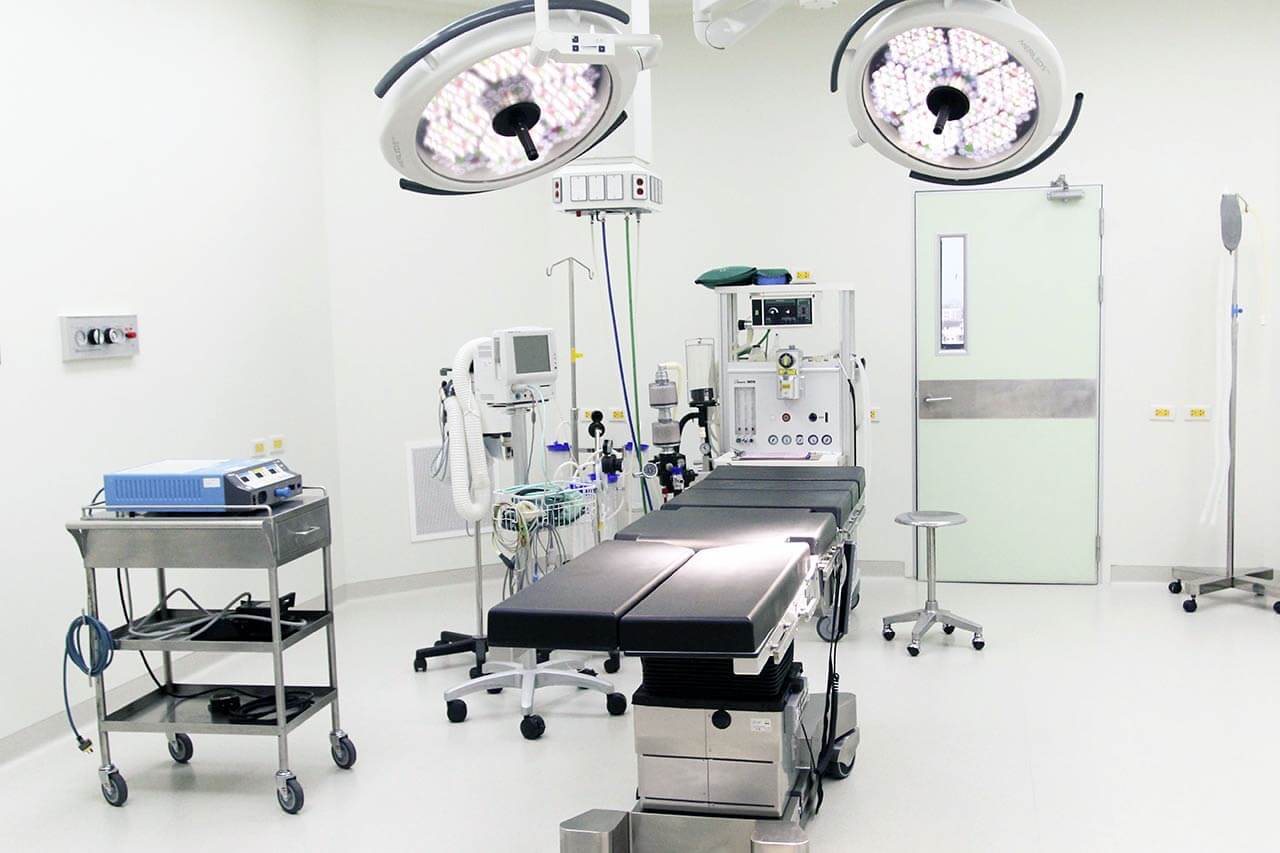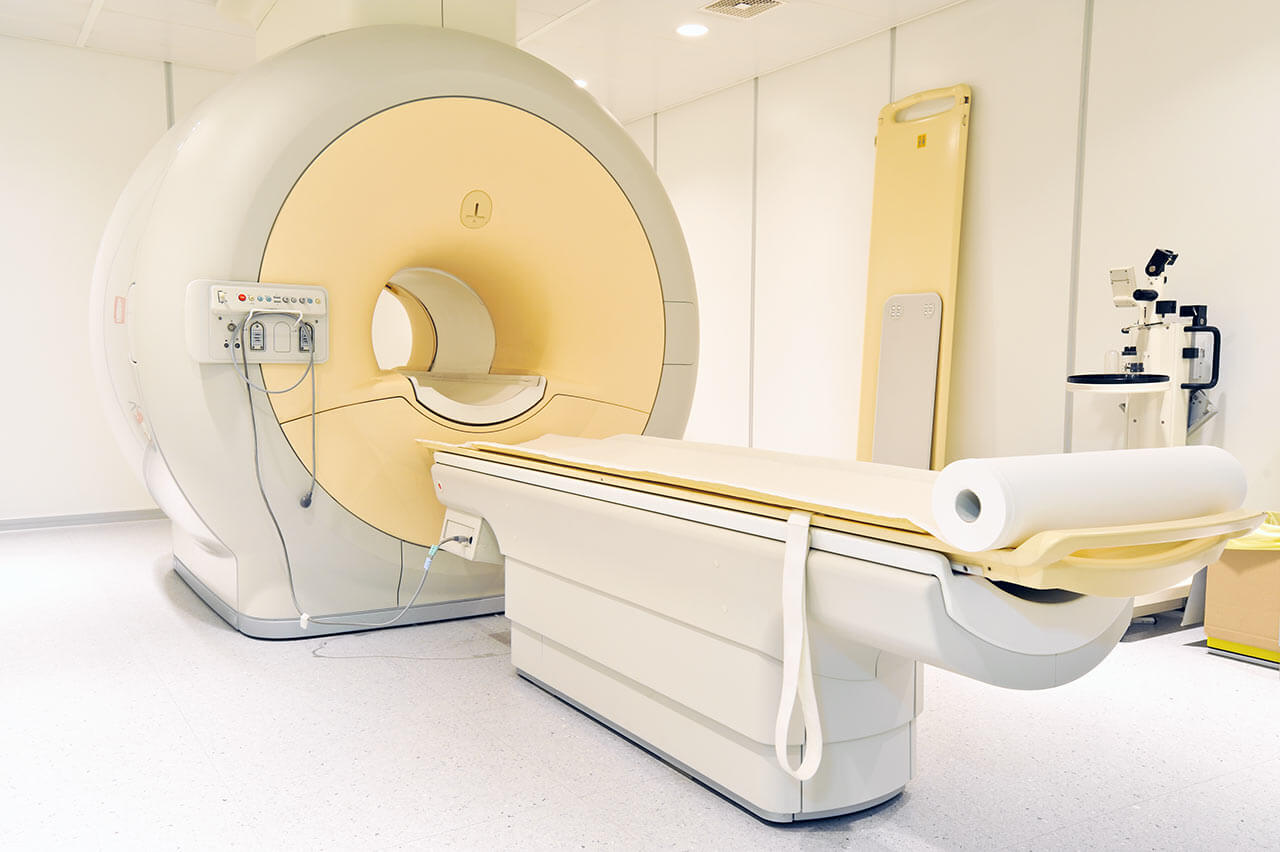
The program includes:
- Interview with doctor, medical history taking
- general clinical examination
- vascular system assessment
- extended blood test:
- thyroid function test (TSH, fT3, fT4)
- mineral metabolism analysis (Na, K, Ca, Mg)
- lipid metabolism (HDL/LDL, cholesterol,
triglycerides Lip(a), homocysteine) - indicators of blood coagulation (aPTT, PT, INR)
- metabolic status (uric acid, glucose)
- iron content (ferritin, iron)
- inflammatory parameters (CRP, ESR)
- immune status (protein electrophoresis)
- lung function test (spirometry)
- resting and exercise ECG
- color doppler echocardiography
- color doppler sonography of cerebral vessels
- CT angiography of coronary vessels (if clinically indicated, additional cost is 1000 €)
- fundus examination (in hypertension)
- interview and recommendations after examination
- written statement
Required documents
- Medical records (if availale)
Service
You may also book:
 BookingHealth Price from:
BookingHealth Price from:
About the department
The Department of Cardiology and Pulmonology at the Hospital Schwabing Munich offers the full range of diagnostic and therapeutic services for the patients suffering from diseases of the cardiovascular system and lungs. The department's specialists have expert knowledge and rich experience in providing medical care to the patients with pathologies of any severity, ranging from congenital heart diseases, heart failure, cardiac arrhythmias, arterial hypertension to bronchial asthma, bronchitis, chronic obstructive pulmonary disease (COPD), benign and malignant lung tumors. The department has an in-house Cardiac Catheterization Laboratory. The doctors working here perform sparing heart interventions that allow the patient to avoid invasive cardiac surgery. In addition, the department offers the services of the Chest Pain Unit certified by the German Cardiac Society. The experienced cardiologists who have all the necessary technical resources to provide effective care for acute coronary syndrome take care of the patients here. The department annually diagnoses and treats more than 4,000 patients, while each of them receives medical care of the highest European level. The department is headed by Prof. Dr. med. Ellen Hoffmann.
The first stage of treatment is always comprehensive diagnostics, which allows the doctor to assess the patient's health, establish an accurate diagnosis and select the optimal treatment regimen, which will help effectively eliminate the disease and provide the patient with a decent quality of life. When the department admits a patient with complaints of abnormalities in the cardiovascular system, the doctors conduct laboratory tests, cardiovascular ultrasound scanning, electrocardiography, echocardiography and Holter monitoring. The patients with suspected cardiac pathology are also often appointed diagnostic catheterization procedures, fractional flow reserve measurement, cardiac CT and MRI scans. The set of diagnostic studies is individually determined by the attending physician. After receiving the diagnostic data, the department's specialists begin to elaborate a treatment regimen. Whenever possible, the cardiologists prefer to use drug therapy only. However, they often have to resort to interventional catheter procedures, for which the department operates the specialized Cardiac Catheterization Laboratory. The department's medical team also performs hybrid cardiac interventions in an in-house hybrid operating room. Such operations combine endovascular techniques with classic open surgery. The most demanded heart catheter interventions include percutaneous transluminal coronary angioplasty, stent implantation, rotational coronary angiography, balloon dilatation for aortic valve stenosis, transcatheter aortic valve implantation, annuloplasty for mitral valve pathologies, interventional closure of patent foramen ovale and other therapeutic procedures. When performing the interventional manipulations, the department's cardiologists strictly adhere to the current clinical protocols, which almost eliminates risks to the patient's health. In addition, the specialists of the medical facility have performed thousands of successful catheter interventions of varying complexity, so the effectiveness of treatment is at the highest level.
The department is also distinguished by its special competence in the diagnostics and treatment of lung diseases. The department's pulmonologists are focused on the patients suffering from chronic and inflammatory airway diseases, bronchial asthma, bronchitis, chronic obstructive pulmonary disease (COPD), as well as benign and malignant lung tumors. To make an accurate diagnosis, the patient should undergo a comprehensive examination, which may include laboratory tests, bronchoscopy, pulmonary function tests, biopsy (endobronchial and transbronchial) in case of suspected lung cancer and other diagnostic studies. The department's pulmonologists are highly qualified in the diagnostics and treatment of lung cancer. Should the diagnosis be confirmed, the patient will require additional examinations to determine the type of tumor, its exact location, degree of spread and size. The treatment of lung cancer is based on the surgical resection of the malignancy, which is performed in collaboration with thoracic surgeons. The surgical procedure is supplemented by chemotherapy and/or radiation therapy (provided in cooperation with specialized physicians). Great importance is attached to the follow-up care of the patient after completion of the basic treatment, as well as to the regular medical check-ups for the prevention of cancer recurrence.
The department specializes in the diagnostics and treatment of the following diseases:
- Heart diseases
- Heart failure
- Coronary artery disease
- Congenital and acquired heart defects
- Heart rhythm disturbances (arrhythmias)
- Acute coronary syndrome
- Heart valve pathologies
- Patent foramen ovale
- Arterial hypertension
- Diseases of the lungs and respiratory tract
- Chronic and inflammatory diseases of the respiratory tract
- Bronchial asthma
- Bronchitis
- Chronic obstructive pulmonary disease (COPD)
- Benign and malignant lung diseases
- Other diseases of the cardiovascular system, lungs and respiratory tract
The department's range of diagnostic and therapeutic services includes:
- Diagnostic services in cardiology
- Cardiac catheterization using intravascular ultrasound scanning, Doppler aortic blood flow velocity measurements and fractional flow reserve assessment
- Echocardiography including 3D echocardiography, transesophageal echocardiography and stress echocardiography
- Resting and stress electrocardiography, 24-hour Holter monitoring
- Myocardial scintigraphy
- Cardiac CT
- Cardiac MRI
- Therapeutic services in cardiology
- Percutaneous transluminal coronary angioplasty
- Stent implantation
- Rotational angioplasty
- Balloon dilatation for aortic stenosis
- Transcatheter aortic valve implantation
- Annuloplasty for mitral valve regurgitation
- Interventional procedures to close patent foramen ovale and atrial septal defects
- Mechanical circulatory support, drug therapy and cardiac resynchronization therapy for heart failure
- Carotid artery stenting using neuroprotective systems
- Implantation of pacemakers, defibrillators and modern biventricular pacemakers
- Port system placement
- Diagnostic services in pulmonology
- Bronchoscopy, including endobronchial and transbronchial biopsy (under general anesthesia)
- Comprehensive pulmonary function testing at rest and during physical exercise (whole body plethysmography)
- Obstructive sleep apnea diagnostics
- Therapeutic services in pulmonology
- Bronchoscopic laser procedures
- Interdisciplinary treatment of malignant and benign tumors of the lungs and pleura (in collaboration with thoracic surgeons, oncologists and radiation therapists)
- Long-term oxygen therapy and home mechanical ventilation
- Other diagnostic and therapeutic options
Curriculum vitae
Prof. Dr. med. Ellen Hoffmann is the Head of the Department of Cardiology and Pulmonology at the Hospital Schwabing Munich. She enjoys a reputation as an internationally renowned cardiologist. Of particular clinical interest to the specialist is cardiac catheterization, percutaneous transluminal coronary angioplasty and coronary stenting.
Dr. Hoffmann is also actively involved in research activities, which mainly focus on the diagnosis and treatment of cardiac arrhythmias, for example, the diagnosis and treatment of atrial fibrillation using 3D mapping systems (Carto 3, NAVX), supraventricular arrhythmia ablation.
Prof. Ellen Hoffmann has extensive experience in the implantation if single- and dual-chamber pacemakers, defibrillators, cardiac resynchronization therapy, balloon dilatation for coronary occlusion, transcatheter aortic valve implantation, interventional procedures to close patent foramen ovale and atrial septal defects, mitral valve clipping in the case of its insufficiency.
Photo of the doctor: с) München Klinik Schwabing
About hospital
The Hospital Schwabing Munich is one of the oldest medical facilities in the Schwabing region with a history of over 100 years. The hospital is proud of the excellent state-of-the-art equipment, modern infrastructure, highly professional medical personnel and location in a picturesque park area. The medical complex is the academic hospital of the University Hospital of Ludwig Maximilian University of Munich and the University Hospital Rechts der Isar Munich, therefore, it offers unique innovative diagnostic and treatment methods. The treatment can be provided both on an inpatient and outpatient basis. The work of the medical center is based on an individual approach to each clinical case, as well as on the strictest adherence to high standards of quality, hygiene and safety.
The hospital has a large number of beds for patient hospitalization – more than 700 beds. The medical facility admits over 125,000 patients for diagnostics and treatment, and this figure grows steadily every year, which indicates the authority of the hospital not only in the region, but also throughout the country. In addition, the medical center often admits foreign patients for medical treatment.
The hospital presents almost all the main areas of modern medicine, including oncology, surgery, gynecology, gastroenterology, endocrinology, diabetology, otolaryngology, pulmonology, thoracic surgery, orthopedics, traumatology, neurosurgery, etc. In addition, the specialists of the hospital admit young patients for treatment, providing them with proper medical care.
Particular attention should be given to the competent team of doctors who have vast clinical experience, thanks to which they provide patients with effective treatment even in particularly complex clinical cases. According to the prestigious Focus magazine, many doctors of the clinic have been repeatedly ranked among the best German specialists. The experts also take care of the patients' comfort during treatment, surround them with care and show a humane attitude, supporting patients on their way to recovery.
Photo: (с) depositphotos
Accommodation in hospital
Patients rooms
The patients of the Hospital Schwabing Munich live in comfortable single, double and triple rooms with a modern design. The patient rooms have everything necessary for maximum comfort of patients. Each patient room has an ensuite bathroom with shower and toilet. All patient rooms are equipped with a telephone, which is available for an extra fee via a special card. The standard room furnishings include an automatically adjustable bed, a bedside table, a wardrobe, a table and chairs for receiving visitors. Wi-Fi is also available in the patient rooms.
If desired, the patient can stay in the enhanced comfort patient room, which additionally includes a safe, a minifridge and upholstered furniture.
The hospital also has a library with a large assortment of books, magazines, CDs and DVDs, a shop, a hairdressing saloon and a cafe where the patient can enjoy tasty snacks or a cup of hot tea, aromatic coffee and soft drinks.
Meals and Menus
The patients of the hospital are offered tasty and healthy three meals a day: breakfast, lunch and dinner. All dishes are cooked from fresh food available in the region. Breakfast and dinner are served buffet style, while for lunch the patient has a choice of three menus.
If you are on a specific diet for some reason, you will be offered an individual menu. Please inform the medical staff about your dietary preferences prior to the treatment.
Further details
Standard rooms include:
Religion
The religious services are available upon request.
Accompanying person
During the inpatient program, the accompanying person can live with the patient in a patient room or a hotel of his choice. Our managers will help you choose the most suitable option.
Hotel
During the outpatient program, the patient can stay at the hotel of his choice. Our managers will help you choose the most suitable option.




